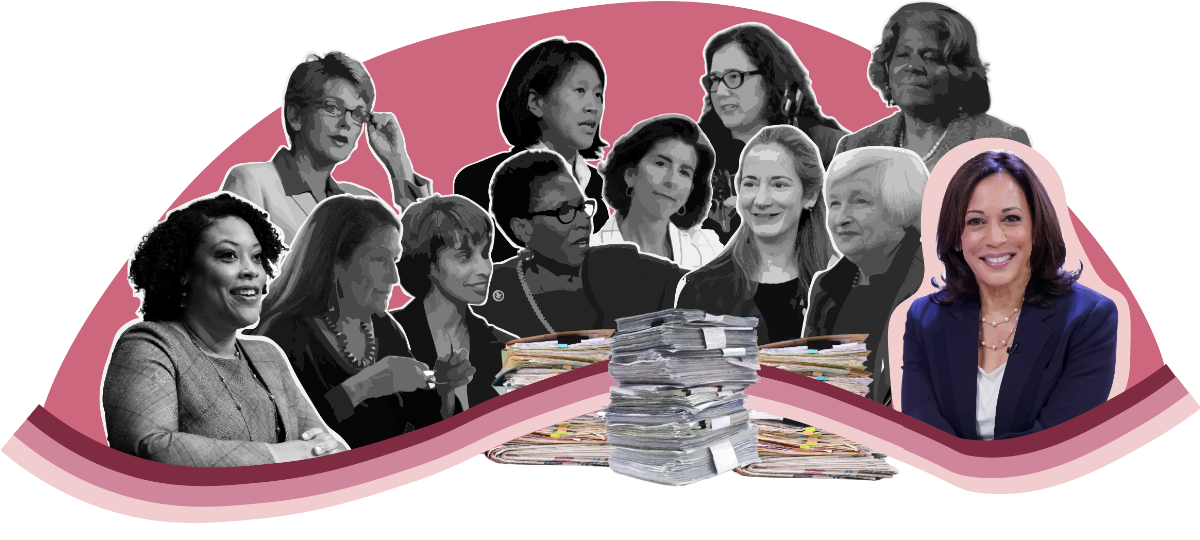
Kamala Harris, Madame Vice President
If there is a person at the head of our imaginary “Table for 12” it would be Vice President Kamala Harris. So much has been written about her including great profiles in The New York Times, Vogue, the Times Magazine, San Francisco Magazine, and many others, so instead of writing about how she got to the table as I have in all the other profiles in this series, I want to focus on the work she is doing at the table, nearly 100 days into this administration.
“Harris is enjoying an unusually high profile as second-in-command,” writes Susan Milligan in US News & World Report, “in part because of the groundbreaking nature of her election and in part because of the front-and-center role President Joe Biden has given her.”
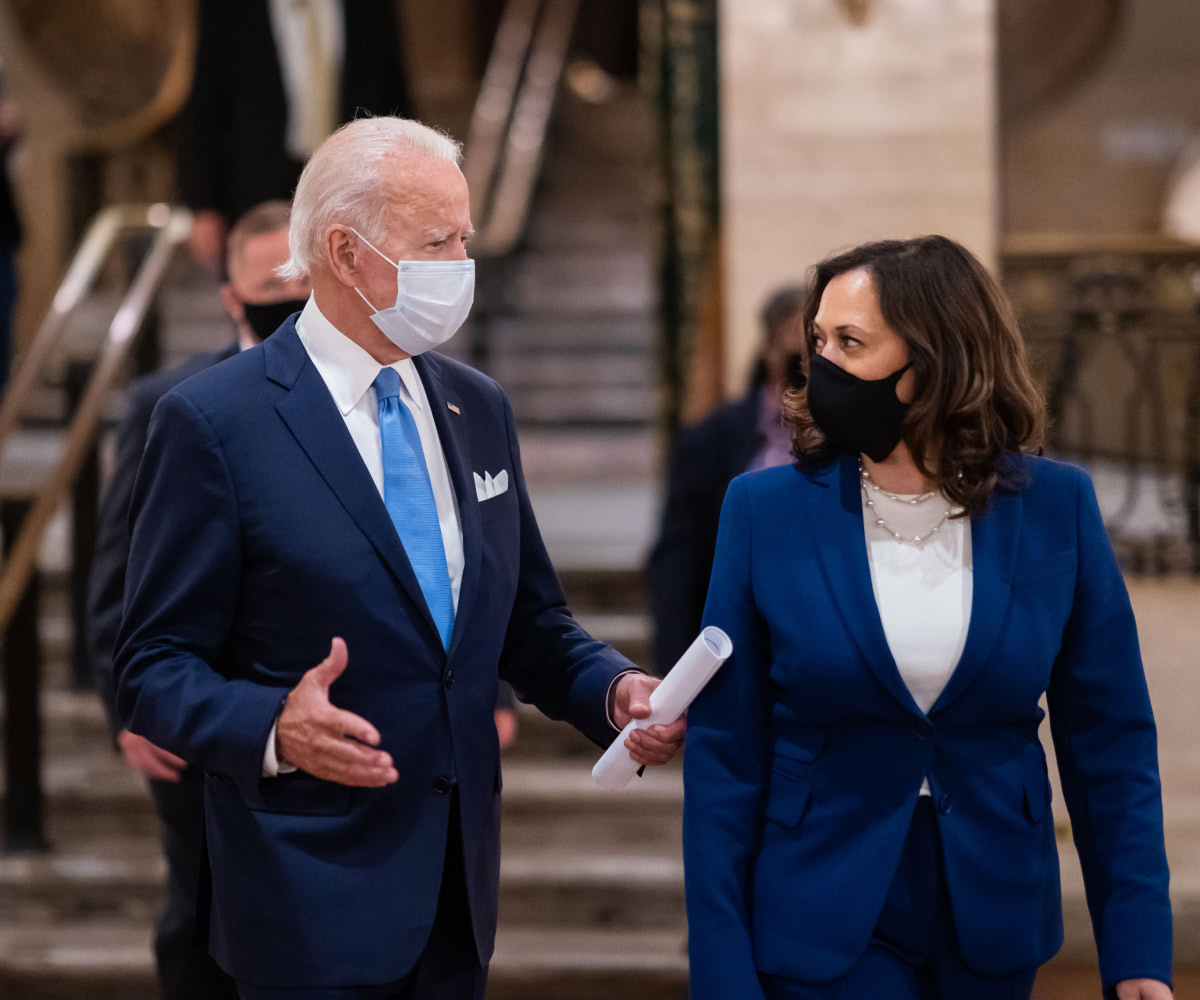
The role of the vice president and the power dynamics in the White House are not defined and depend on the relationship between the players in each administration. It was only 40 years ago that the vice presidency went from understudy waiting in the wings into something more substantive. President Jimmy Carter, who came to office touting himself as a Washington outsider, tapped Walter Mondale, a long-time senator, to be his vice president. He said he needed an insider to help him get the job done and he wanted Mondale to “be a true governing partner.” It redefined the job.
Having been in the role himself, Biden is familiar with the challenges of being second in command. When he announced Harris as his running mate, he recalled what he said to then-presidential candidate Barack Obama when he asked him to take on the job: “I told him I wanted to be the last person in the room before he made important decisions.”
“That’s what I asked Kamala,” Biden said. “I asked Kamala to be the last voice in the room. To always tell me the truth.”
According to the BBC, he appears to be keeping his word. “Biden has said ‘there’s not a single decision I’ve made yet’ about his administration that he hasn’t consulted with Ms. Harris on first. She has also interviewed each of Biden’s potential cabinet nominees.”
Add to that the fact that Harris, as president of the Senate, has the potential to be the tie-breaking vote in so many future crucial decisions. She has a power that very few vice presidents have had, the ability to shape and champion legislation from the West Wing in a very public way.
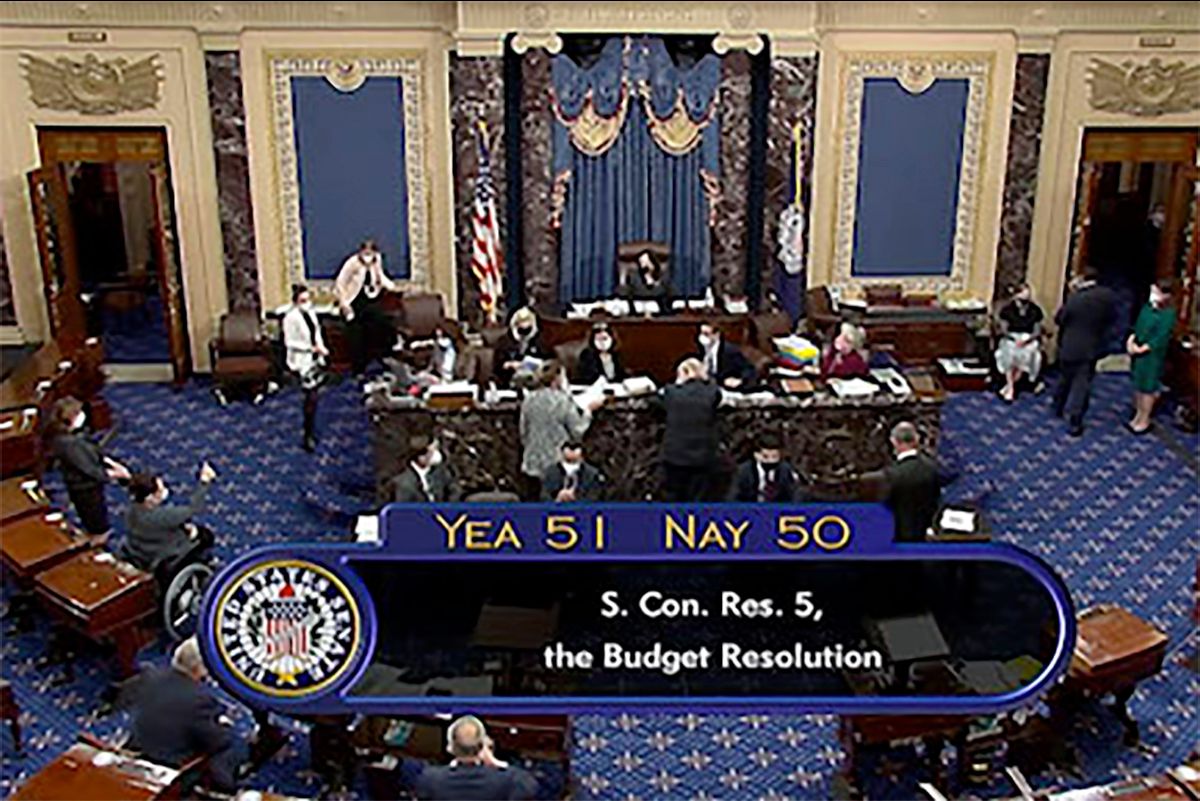
That includes the landmark American Rescue Act which President Biden signed on March 11. In her first sit-down interview as vice president, Harris said that there were several parts of the bill addressing issues that she had personally weighed in on, including the Covid-19 Equity Task Force and working to ensure equitable distribution of the vaccines.
Last week, the White House issued the first-ever official presidential proclamation of Black Maternal Health Week, recognizing the unacceptable disproportionate high rate of pregnancy and childbirth-related deaths and complications that Black women in the United States experience. The week was established by the Black Mamas Matter Alliance following a resolution sponsored by Rep. Alma Adams and Senator Harris in 2017.
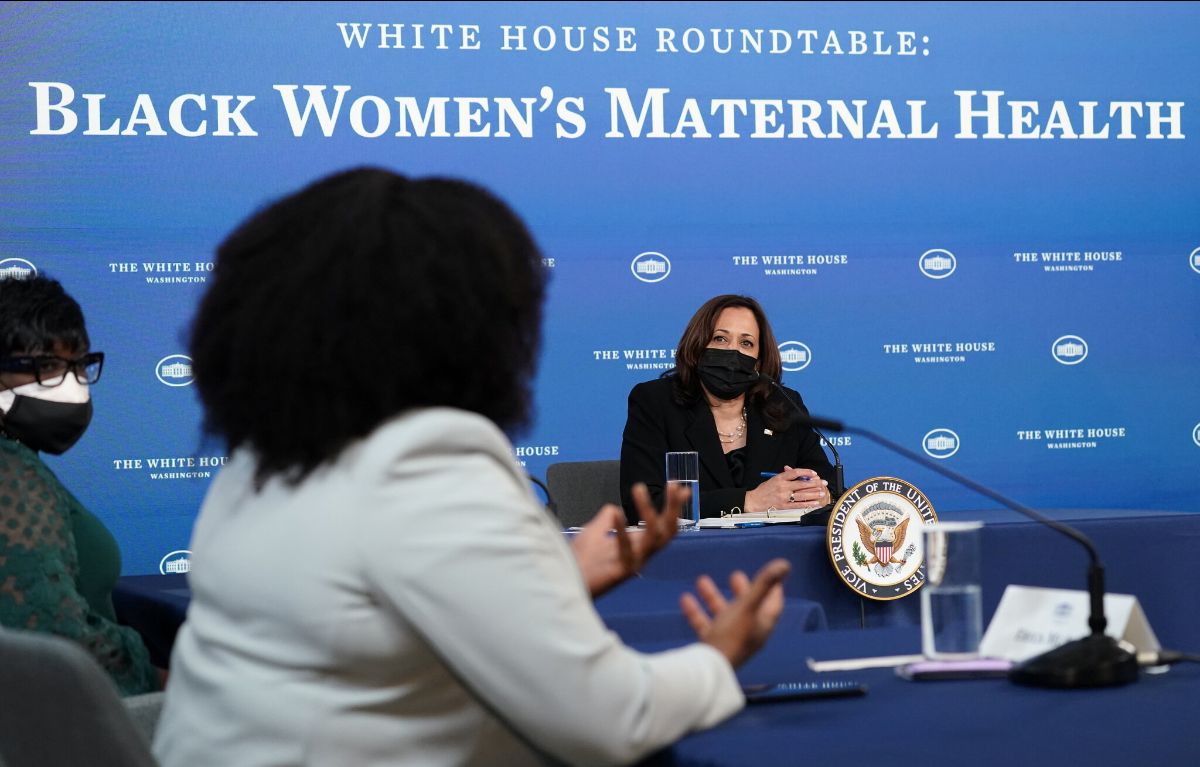
Harris hosted a roundtable on the topic, alongside Susan Rice, director of the Domestic Policy Council. “Make no mistake,” she said. “Black women in our country are facing a maternal health crisis. Black women are two to three times more likely to die in connection with childbirth than other women. …We know the primary reasons why: systemic racial inequities and implicit bias.”
And this week, Harris is working to drum up support for the American Jobs Plan, Biden’s proposed $2 trillion infrastructure package, that she calls a crucial next step to create millions of jobs, rebuild our infrastructure, fight climate change, and so much more. The infrastructure package “will be the largest jobs investment our country has made since World War II,” Harris said in a speech in North Carolina.
Earlier this month, President Biden asked Harris to take the lead in diplomatic efforts to stem the tide of unaccompanied minors at the southern border. “There’s no question that this is a challenging situation,” she said after the announcement. One that she has years of experience with, both as a senator and attorney general in California.
As a senator, Harris was one of the first to sign on to co-sponsor 2019 legislation that would expedite the process of delivering unaccompanied minors to their sponsors in the US. The bill, which never made it to a floor vote, also guaranteed minors access to legal counsel in immigration hearings. As attorney general of California in 2014, Harris appealed to local lawyers and corporations to offer pro-bono services to immigrant children staying with sponsors in the state.
“These are issues that are not going to be addressed overnight, in terms of the root causes issue,” she remarked in a virtual roundtable of experts on the Northern Triangle (El Salvador, Honduras, and Guatemala). “A large part of our focus is diplomatic, in terms of what we can do, in a way that is about working with these countries.” She said she plans on visiting Mexico and Guatemala very soon.
‘Breaker of Barriers’
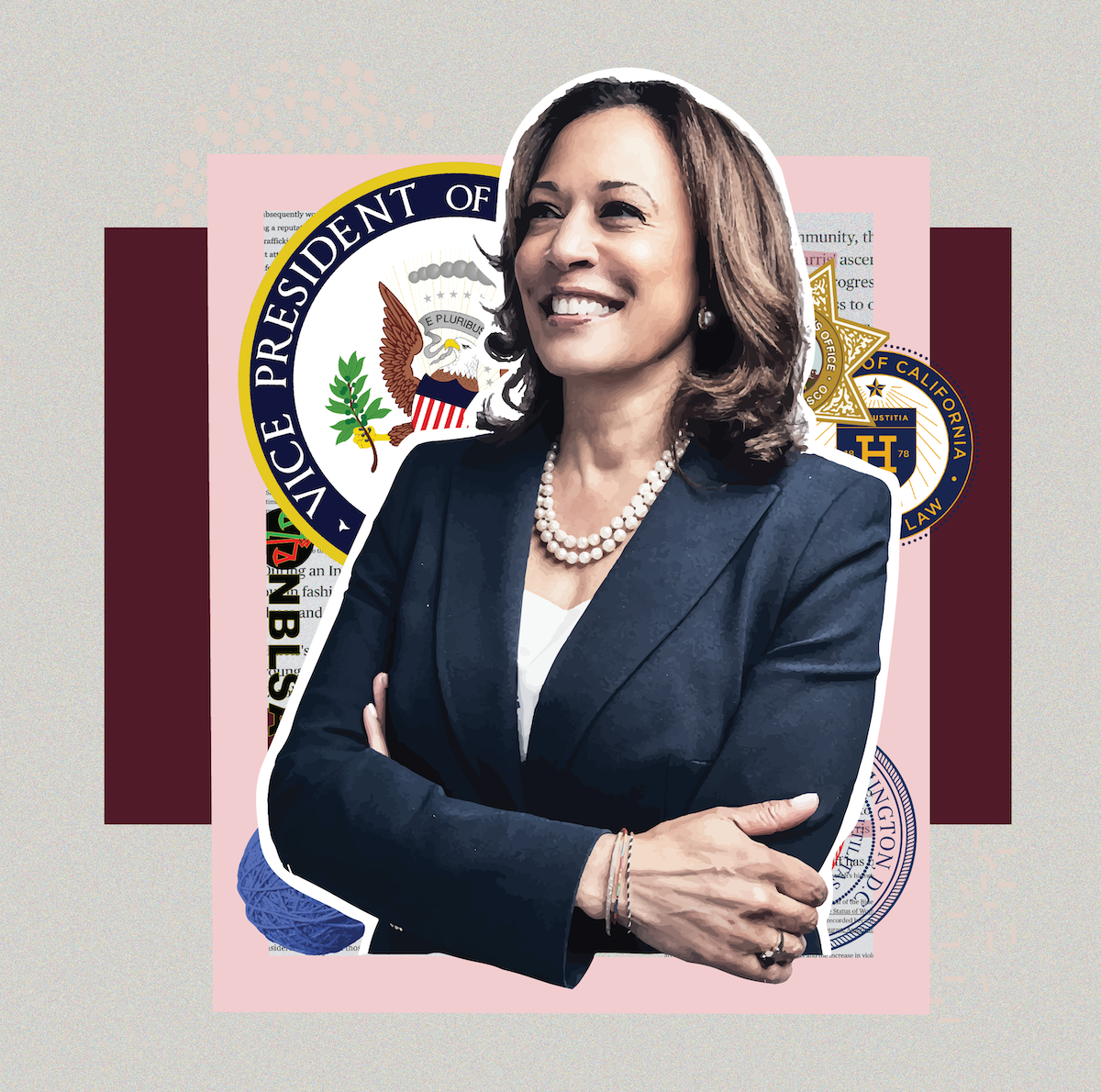
“Allies say Ms. Harris is acutely aware of her place in history,” reports the Times. “She views her work as connected to both the civil rights leaders who came before her — the ‘ancestors,’ as she calls them — and the generations she hopes to empower.”
Her sister Maya told Vogue that “she sees the influence of their mother in the kind of leader Harris has become: ‘Our mother broke barriers, and she brought other people along with her.’”
In her first hires, Harris made history announcing the first-ever all female senior team in the office of the vice president. That same week, Biden announced an all-female communications staff, including two women — Ashley Etienne and Symone Sanders — assigned to Harris.
“This is a woman who knows what she’s doing,” says Michelle Obama. “It can’t be about trying to please everybody or prove to certain people you’re good enough for the job. And the vice president wouldn’t be where she is today if she let that kind of thing get to her.”
“[Harris] is so used to being a barrier breaker,” Errin Haines, editor-at-large at The 19th News, said in a recent GW University panel assessing Harris’s first 100 days. “Before she was the first woman and first person of color to be vice president, she was the only Black woman to serve in the Senate. And before that she was the first Black woman to be attorney general of California. And before that she was the first district attorney to serve in that role in San Francisco.”
“In each of those roles, it was her power, not her novelty, that mattered.”
— Errin Haines
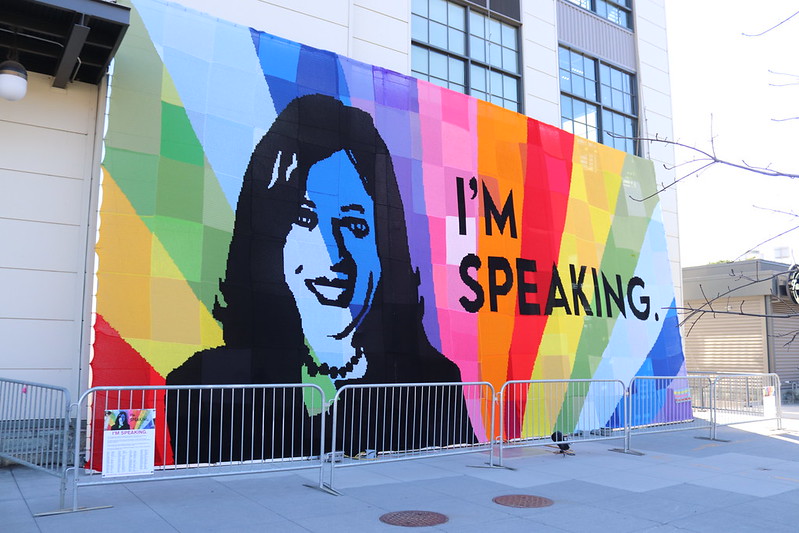
“She has great potential to be able to normalize women’s leadership in this position of power,” says Haines. “So it’s not just about her, it’s about how we as a country respond to her.” And part of that response, writes Haines, includes the media. “To see and report on Harris as a powerful politician and not a pioneer is to be truly groundbreaking in our coverage of politics — to show the role of gender in governing, rather than to obsess over it.”
I couldn’t agree more. And Harris has shown what a woman brings to the leadership table. She’s shown it with the Equity Task Force, bringing voices to the table who have previously been left out of the conversation. She’s shown it by elevating and prioritizing the crisis of maternal health care in this country, and with her insistence that getting women back into the workforce is a priority that will grow our economy. Having women in positions of power means having fuller conversations about the problems that we all grapple with as a society, and coming up with better solutions that benefit us all.
Madam Vice President, a heartfelt feminist welcome to the table.
Onward!– Pat
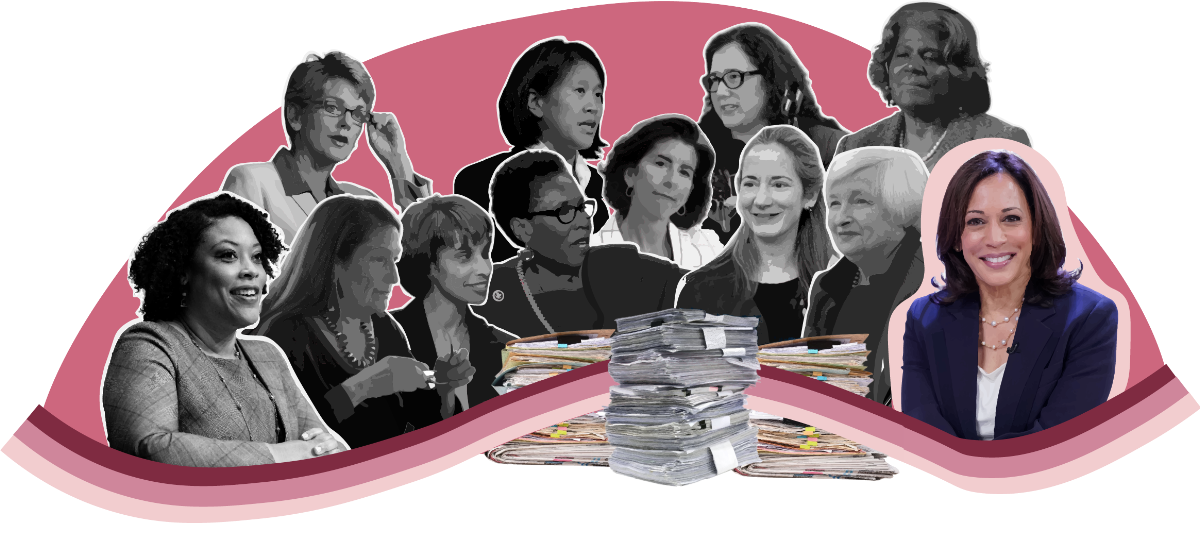
at Ms. Magazine Blog.
In the ongoing series, Table for 12 by Pat Mitchell, we’re continuing to celebrate the unprecedented number of women nominated for Cabinet positions by President Biden. 21 of Biden’s 23 Cabinet nominees have been confirmed. Read more about US Ambassador to the UN Linda Thomas-Greenfield, Treasury Secretary Janet Yellen, Director of Intelligence Avril Haines, and more at the link above.


